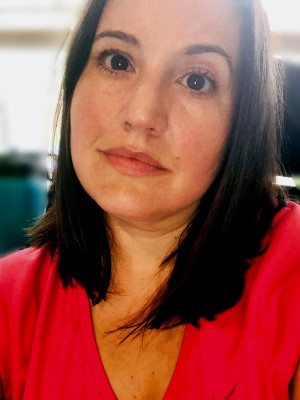My husband Arturo and I became parents in 2010 to a beautiful boy named Ezra. In 2012, we became the parents of two beautiful boys, Ezra and Jonah. And in 2015, we became the parents of three beautiful boys: Ezra, Jonah, and Asa.
I had vague dreams of the glorious, sun-drenched days we would spend with our three boys. Two friends, who each also had three boys, welcomed me jokingly into the “three boys club”. I took pictures of my three boys in matching outfits and shared them on Facebook.
But by late 2016, Asa began to match his brothers less and less. He stopped making eye contact and did not meet milestones. I put on my warrior gear and marched forward, slashing through red tape; demanding answers; determined to do every possible thing to help our sweet little boy.
And thus I ran, headlong and at full force, until in April 2018 I crashed into a brick wall: Asa’s genetic diagnosis. We learned he has Phelan-McDermid Syndrome, a rare and devastating developmental disorder without a cure, or even any treatment—a far worse prognosis than any of his doctors had anticipated. That same month, as if on cue, Asa had his first major regression.
I broke into a million pieces.
Bright, sunny days became unbearable to me: they were an overwhelming reminder of all the carefree, “three-boys” days that would never be.
Over the past two years, I have adjusted to my new, Sisyphean job: advocating relentlessly for progress, knowing there is a good chance Asa will ultimately lose, through repeated regressions, whatever skills he gains.
I still have not fully embraced our reality. I still grieve for the little boy I thought we had, and I miss that boy so very much. Our days are much harder in many ways than they would have been if Asa did not have that one extra letter out of three billion in his genome.
But it is not all sadness. We are learning a new depth of love and character made possible only by that extra letter. Sun-filled days are still a little bright for my eyes, but I can usually handle them.
Even more amazing, when Asa and I play together now, I often find myself laughing and realize: for just a few moments, I was thinking only of this Asa—this sweet, wonderful Asa—not about the boy I thought he would be, and not about his disabilities.
I hope that, one day, thinking of Asa this way will become my default—and that I will never stop becoming the mother that he needs me to be.
– Talya

